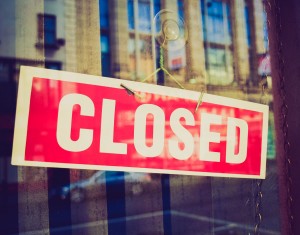Blue Laws: From Religious Beginnings to Secular Ends?

I remember the difference between going to Costco with my parents on Sundays in Bergen County, New Jersey, versus on any other day of the week. The stacks of books, clothes folded and laid out on tables, warehouse racks of goods—anything that wasn’t an essential grocery or food was cordoned off with string barriers with this message: “Due to Bergen County Blue Laws, these items cannot be purchased today.”
I never thought much of it—except that Sundays were often horribly boring because nothing nearby is open except grocery stores and gas stations. I would get stuck in the house doing chores, or worse, dragged to New York (when you’re young and spoiled, it’s not that cool) to go grocery shopping in Chinatown or spend hours having dim sum with the family.
Apparently, Bergen County is the only county in the US that still has such broad shopping restrictions (even after Gov. Chris Christie once advocated for their repeal to help the economy). Blue laws are Sunday laws restricting “immoral” activities based on preserving Christian religious values of the Sabbath. They disputably got their name either from the colony of New Haven (when laws based on Puritan values were printed on blue paper), because of the expression “true blue” (which referred to moral stalwarts), or because, as described by the First Amendment Center, “…the term was coined by critics to ridicule the effort to prevent ‘blue’ or indecent behavior, such as drinking and fornication.”
Many of these laws were amended to be less strict over time, repealed, or have fallen into desuetude. We obviously no longer prosecute those who kiss their wives or play baseball matches on Sunday.
Today’s blue laws usually restrict activities like the sale of alcohol (mostly originating from Prohibition), sex toys, or other nonessential goods, and in a few states, they restrict the opening for business of car dealerships, hunting, horseracing, and gambling. In Bergen County, the laws still ban selling electronics, clothing, and furniture; in Paramus, the laws restrict even more.
It seems clear to me that blue laws are in violation of the establishment clause of the First Amendment: “Congress shall make no law respecting an establishment of religion, or prohibiting the free exercise thereof…” However, in four separate Supreme Court blue law cases (McGowan v. Maryland, Braunfeld v. Brown, Gallagher v. Crown Kosher Super Market of Massachusetts, Two Guys from Harrison-Allentown, Inc. v. McGinley), the majority opinions upheld the laws, determining that though the original intent of the laws were religious in nature, they had evolved over time to serve more secular purposes, such as establishing a day of rest from work. In Bergen County, the rationale I heard the most growing up was that no shopping on Sunday gave the community some peace and quiet from the usual traffic and congestion from shoppers heading to the malls, gives us a day to refrain from consumerist and materialistic behaviors, and allows (or forces, depending on how you look at it) families to spend quality time together at home. An additional economic argument typically wielded by mom-and-pop stores is that allowing businesses to open on Sunday puts them at an unfair disadvantage because chains and larger stores can afford to stay open on Sundays, and the owners of smaller businesses would feel compelled to work on their day off to remain competitive.
But these rationales have a few problems. Business owners who observe the Sabbath on Saturday, such as Seventh Day Adventists and Jews who may already close on Saturday to respect their religious practices, feel they are at an unfair disadvantage when forced to close Sunday, in addition to feeling that the Christian Sabbath is prioritized by law.
And while anyone can understand the desire for a collective day of rest and the idea that one ought to take thoughtful hiatuses from consumerism, these regulations of what is considered moral behavior and restrictions on personal freedom shouldn’t come from government but decided at the individual or family level.
It does get complicated because the Fair Labor Standards Act doesn’t specifically restrict how much someone above the age of sixteen can work in a week, and these Sunday restrictions help some workers get the rest they deserve without feeling compelled to work Sundays or lose their jobs (the same dilemma happens when retail workers are “asked” to work on Thanksgiving). But several states have “One Day of Rest in Seven” (ODRISA) legislation that stipulates, with varying implementation, that workers must take a full day of rest after working a full calendar week, with no restriction on which day that is. This type of labor standard, if legislated nationally, can easily replace blue laws, giving individuals more freedom and respecting the rights of religious minorities.
Even if religious blue laws have turned into secular benefits, Americans have moved beyond the days of the government telling us which days we’re allowed to shop.
